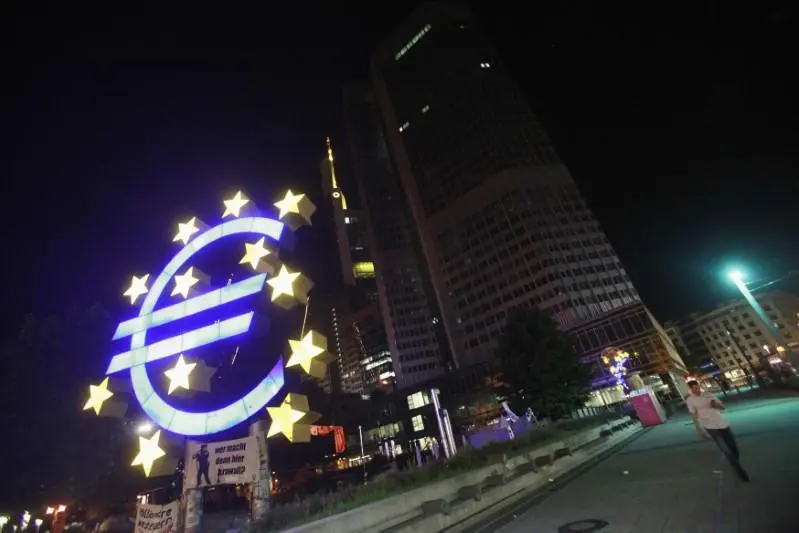PHOTO
LONDON- Euro zone bank stocks fell to a 13-month low on Monday on concerns a possible U.S. and European ban on Russian oil imports could slow economic growth and lift inflation even higher.
The euro zone bank index tumbled as much as 9.5% in early London trading. It was down 5.2% at 1020 GMT.
Shares in UniCredit, Commerzbank, Deutsche Bank, Raiffeisen, Bank of Ireland and Societe Generale were among the biggest fallers, down between 4% and 10%.
Reports that Europe and the United States were considering banning oil imports from Russia sent oil prices to a 2008 high of around $139 per barrel.
"Fears around stagflation are at the forefront of investor minds," Bernstein strategists Sarah McCarthy and Mark Diver said, and European banks have been among the hardest hit.
The euro zone bank index has shed 37% in less than one month, after climbing to its highest since 2018 in February.
Just one month ago investors were betting on European banking stocks riding higher as the continent's economy was recovering from the pandemic, but Russia's invasion of Ukraine has hit lenders through multiple channels.
Economy-sensitive cyclical stocks, such as banks, which were seen thriving from the easing of the pandemic, are now expected to be among the worst hit from the uncertainty caused by the Ukraine conflict.
Lenders were also seen as the main beneficiary of a potential European Central Bank interest rate hike as investors expected the central bank to move away from sub-zero rates in a bid to tackle rising inflation. But since the invasion money markets have scaled back their ECB rate hike expectations amid rising fears for the economic damage caused by the war.
A wave of sanctions on Russia over its invasion of Ukraine has also thrown the global banking industry deeper into turmoil as Western countries try to squeeze Moscow's access to cash.
Banks with exposure to Russia and Ukraine will need to make hefty provisions for the drop of the valuation of their assets in the region, analysts said.
Austria's Raiffeisen, France's Soc Gen, and Italian lenders UniCredit and Intesa SaoPaolo are the most exposed to the Russia economy. (Reporting by Joice Alves; Editing by Saikat Chatterjee and Nick Macfie)





















